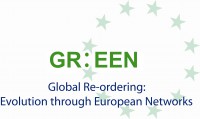Europe's Role in Global Financial Governance - Historical Lessons and Future Outlook

Since its beginnings in the 1950s, European integration has been transforming the member states of the European Union (EU). As the so-called euro - crisis forcefully revealed, one of the most consequential dimensions of European integration has been in finance — the markets themselves and the design and enforcement of the rules governing them. Even as national borders continue to shape European financial markets and their governance, Brussels has become the undisputed hub of financial regulation in Europe.
The concentration of competencies in Brussels and the attendant expansion and ‘modernization’ of European financial markets have not only left their mark on the social and economic fabric of European societies. The EU has also acquired sufficient market size and regulatory capacity to end the unchallenged domination of global financial governance by the USA. EU financial regulation and integration had historically evolved in the shadow of global developments and initiatives, for example, the Basel accord on capital requirements. But certainly since the 2000s, Brussels has started to ‘talk back’ — both to EU member states haggling over EU financial rules and to organizations and governments outside the EU, whose policies it increasingly shapes.
As extra-European initiatives inform the development of European rules and vice versa, neither can be fully understood without a consideration of the other. But practitioners and scholars have had nowhere to turn to for a systematic charting and analysis of these ‘European – global relationships’ — their history, their current shape as they cut across different levels of governance, and their implications for furture policy, global rule coherence, and European influence.
